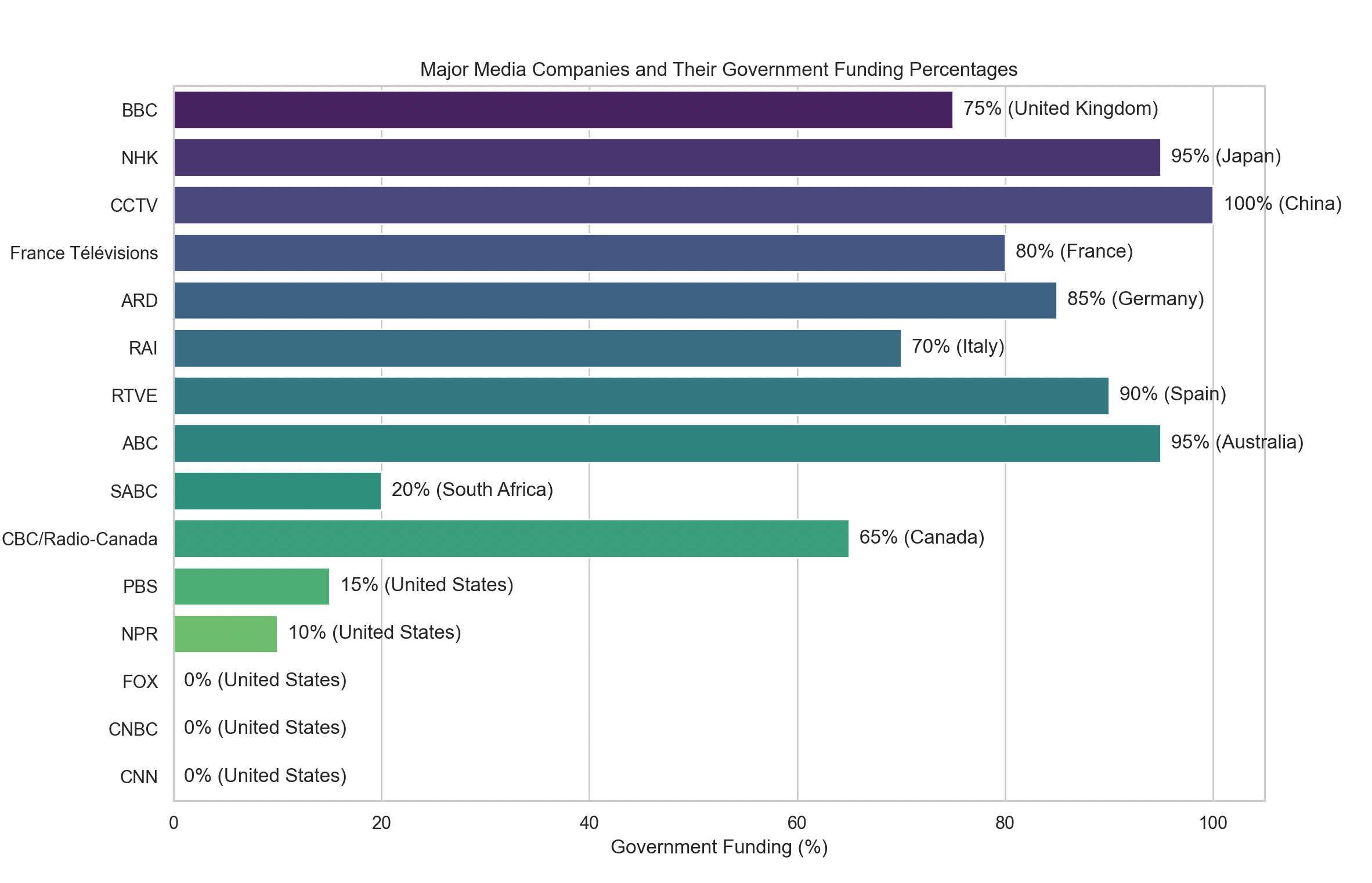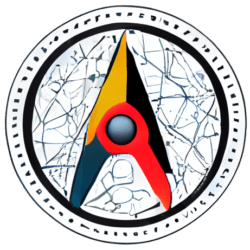Introduction
At ApplyingAI.com, we’re passionate about exploring the immense potential of artificial intelligence (AI) in global macro investing, electric vehicles (EVs), autonomy, space travel, and free markets. Our goal is to empower the future of finance and innovation by showcasing real-world AI applications that are revolutionizing industries. In this article, we’ll share a fascinating story of how OpenAI’s ChatGPT helped create an engaging visualization of global media funding, peppered with a few laughs inspired by a recent Twitter thread.
The Idea
In a world where media plays a crucial role in shaping public opinion and influencing decision-making, understanding the relationship between media companies and their funding sources is vital. We wanted to create an impactful visual representation of government funding for major media companies worldwide, including prominent names such as BBC, NHK, CCTV, and CBC, as well as US-based networks like PBS, NPR, and CNN. Little did we know that our creation would coincide with a humorous Twitter exchange!
The Twitter Drama
As fate would have it, a recent Twitter thread surfaced discussing the Canadian Broadcasting Corporation (CBC) and its government funding. The public broadcaster took issue with being labelled as “government-funded media,” arguing that it undermined their credibility. Elon Musk chimed in, suggesting a 70% government-funded label, followed by a tongue-in-cheek compromise of 69% to “give them the benefit of the doubt.” The exchange lightened the mood and highlighted the importance of accuracy (and humor) in media funding discussions.
The Solution
With the assistance of ChatGPT, we generated a Python script that utilized popular visualization libraries such as matplotlib and seaborn. The script produced a striking horizontal bar chart that showcased the percentage of government funding received by each media company, along with the country they are based in. The visualization, complete with vibrant colors and annotations, allowed for an easy comparison of the government funding landscape across the globe – and a subtle nod to the ongoing Twitter debate.
import matplotlib.pyplot as plt
import seaborn as sns
# Data
media_companies = [
“BBC”, “NHK”, “CCTV”, “France Télévisions”, “ARD”,
“RAI”, “RTVE”, “ABC”, “SABC”, “CBC/Radio-Canada”,
“PBS”, “NPR”, “FOX”, “CNBC”, “CNN”
]
government_funding = [
75, 95, 100, 80, 85, 70, 90, 95, 20, 65,
15, 10, 0, 0, 0
]
countries = [
“United Kingdom”, “Japan”, “China”, “France”, “Germany”,
“Italy”, “Spain”, “Australia”, “South Africa”, “Canada”,
“United States”, “United States”, “United States”, “United States”, “United States”
]
# Set seaborn style
sns.set(style=”whitegrid”)
# Create a horizontal bar plot
plt.figure(figsize=(12, 8))
ax = sns.barplot(x=government_funding, y=media_companies, palette=”viridis”)
# Add title and labels
plt.title(“Major Media Companies and Their Government Funding Percentages”)
plt.xlabel(“Government Funding (%)”)
plt.ylabel(“Media Companies”)
# Annotate the bars with the percentage values and country names
for i, (value, country) in enumerate(zip(government_funding, countries)):
ax.text(value + 1, i, f”{value}% ({country})”, va=”center”)
# Show the plot
plt.show()

The Impact
The resulting bar chart, generated with the help of ChatGPT, has garnered attention and sparked discussions among our audience, as well as some chuckles inspired by the Twitter thread. By understanding the connection between media companies and their funding sources, investors, policymakers, and the general public can make more informed decisions about the future of media, finance, and innovation – and perhaps share a laugh or two along the way.
Conclusion
This unique application of AI demonstrates the power of tools like ChatGPT in simplifying complex tasks and generating insightful outputs, with a sprinkle of humour to keep things light-hearted. We at ApplyingAI.com aim to continue empowering the future of finance and innovation in various domains, such as global macro investing, EVs, autonomy, space travel, and free markets. Stay tuned for more exciting stories, insights, and a few laughs as we continue to explore the captivating world of AI applications!


